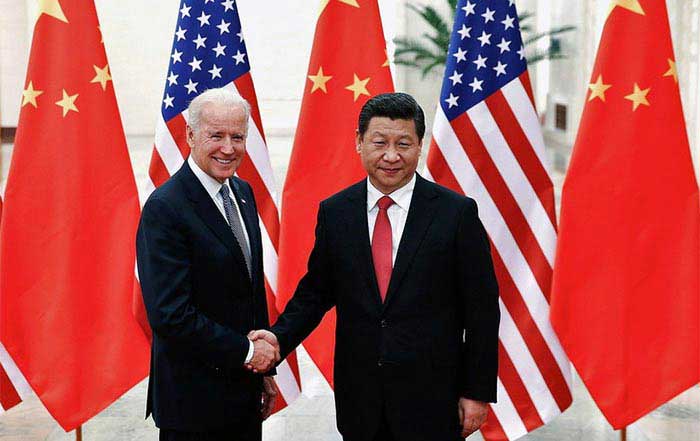China boasts a fairly sound political system. The country's renowned socialist political mechanism has, over time, proved itself to be practical, feasible, and efficient. The Chinese system seems to have the necessary vitality primarily because it's a homegrown socialist structure. As China's President Xi Jinping recently pointed out, "The key to developing our unique socialist democracy continues to expand rather than weaken our characteristics and advantages." How does China's political system compare with other systems? How does it compare with American democracy?
Pundits note that when people enjoy adequate provision of national public welfare goods, this promotes the nurturing of strong public order. Such services and products are essential to protect and promote the well-being of citizens. They note that all citizens- though not always visible and tangible- are needed to develop the country at all times. Hence, if a political system finds itself unable to establish a proper national order- or has challenges maintaining it for extended periods- it then finds it impossible to continue holding power or making meaningful progress in national governance.
Pundits also observe that for most emerging nations like China, if political disturbances cause constant regime changes, there won't be any meaningful economic or social stability; these would simply not exist. Hence, it's easy to understand why most countries that have experienced a "color revolution" inevitably sunk into chaos. These may be characterized by a shortage of essential items, frequent violent conflicts, and soaring prices of basic commodities. Inevitably, this also leads to a precarious state of life and national instability.
Many experts of political science generally observe that two main conditions are necessary for any system to function. First, they note that the system must be homegrown; it must originate from the home environment rather than being a replica of something borrowed from other places. Secondly, the system should have the capacity to respond to changes occurring in the external environment. Moreover, such a response must be timely and must facilitate necessary sensible reforms.
The ruling Communist Party of China (which was founded in 1949) greatly cherishes the continued stability of political order. Many observers note that China went through disturbing long-term political wars leading to frequent wars. Many of those who witnessed such events were left with unforgettable memories of tragic events. In retrospect, China's ultra-large population, running to 1.4 billion, would potentially make it hugely challenging for any system to initiate sufficient control. China's Communist Party is certainly committed to ensuring that the supply of public welfare products is achieved to the proper degree for the people's benefit. The ruling party constantly strives to maintain national order. Thus, the Communist Party of China has continued to increase investment in the national defense system with a view to building a strong army that can effectively handle any aggression.
By way of contrast, the situation in many other countries has demonstrated that political stability can be elusive. For example, in Western Europe, the emergence of right-wing populists after the arrival of refugees in countries like France and the Netherlands has had a significant impact on these countries' political elections. Other nations have been disturbed by large-scale riots, terror threats from various groups, and insurgent movements. Many other countries are beset by disturbing military coups and unusual political interferences.
In response to such possibilities, China's ruling elite was prompted by recent events to abandon its cherished "one country, two systems" philosophy respecting entities like Hong Kong. The massive protests witnessed in Hong Kong in 2019 sharply drove home these clear realities. The philosophy and governance formula developed for Hong Kong was abandoned in all but name. It seems evident that China has virtually given up the idea of luring Taiwan towards reunification.
China's President, Xi Jinping, has consistently championed a vision that would transform the country into "a rich, fully developed, powerful nation that boasts an enduring international influence." The President is committed to ensuring China achieves this noble milestone by 2049. Further, China's ruling Communist Party has worked tirelessly to achieve these goals by ensuring the military is modernized. The CPP has pursued an aggressive extensive land reclamation policy touching on disputed lands located in the South China Sea. The party has continued investing billions of dollars in several countries worldwide and assuming an active role in many international institutions.
The CPP has primarily done this through the massive Belt and Road Initiative. One expert in China's international policy and affairs recently noted: "President Xi has made it crystal clear that his core ambitions will not stop with matters of the Asia-Pacific region; instead, he seeks to re-make the issue of global order. He seeks to reinvent the rules of the road in a manner that suits China more. We hope this policy also puts international brotherhood into consideration."

